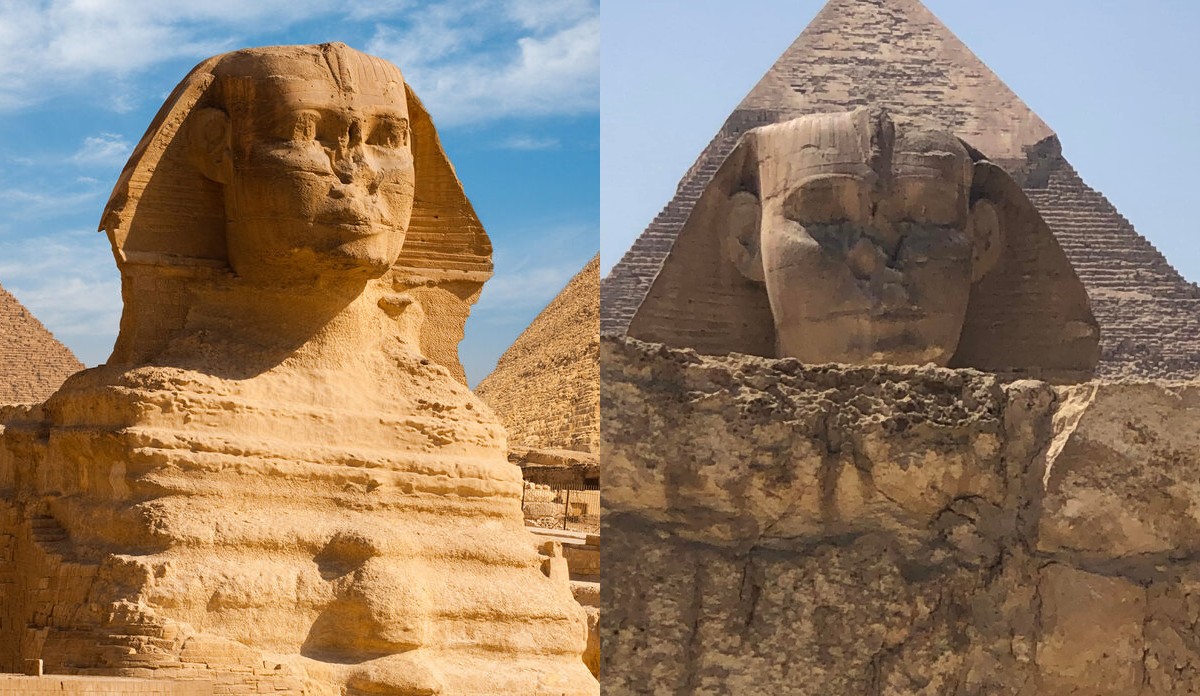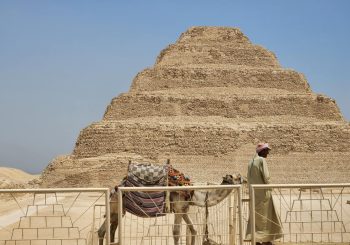
In a strange turn of events, social media users have shared dubious footage of Egypt’s iconic Sphinx statue with its eyes mysteriously closed.
The original post, which has been shared over 6,000 times on Facebook, showcases different photos and videos of the ancient statue with its eyes seemingly closed.
The ‘sleeping’ photos of the Sphinx have been snubbed as fabricated and illogical, as per Ali Abu Dish, an Egyptian antiquities expert and a member of the Federation of Archaeologists, reports Al-Ahram. Nonetheless, Abu Dish asserted that the rumor provided an opportunity for domestic tourism, with a potential for visitors to see the statue for themselves.
“A source at the Ministry of Antiquities confirmed that the photo was a fake of the Sphinx, as it was filmed at an angle opposite the sun. With a weak camera, his features were not shown, which made the picture appear like this,” also reads a post by Tourism Egypt, an Egyptian tourism-focused account on Facebook.
In a similar post, it stated that the Sphinx’s makeshift appearance of ‘sleeping’ and ‘closed’ eyes can be attributed to various reasons: a change in angle, lighting, and finally editing.
The Sphinx is one of Egypt’s most iconic and visited sites. The limestone colossal statue is believed to have been erected during the Old Kingdom, bearing the facial features of the ruler Khafre, to whom one of the Great Pyramids of Giza belongs.
Far and wide, ancient Egypt has continued to be at the heart of mystical and magical ruminations espousing far-fetched theories. Many ancient Egypt enthusiasts resort to untrustworthy pages, poorly-made documentaries, and amateurs to understand more about the civilization which has attracted millions to its sites.
The science of studying ancient Egypt, Egyptology, however, remains a carefully academic field, supported by researchers, excavators, and university professors who base their theories on years of work, and research.






Comments (3)
[…] once again that P.T. Barnum was right, a video has gone viral because it appears to show Egypt’s iconic Sphinx statue with its eyes mysteriously closed – an impossibility the Ministry of Antiquities was forced to address, explaining the photo was the […]
[…] هل أغمض أبو الهول في مصر عينيها حقًا؟ […]